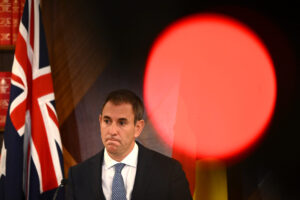Can tampons be given tax-exempt status without state approval?> Check the facts
The claim
“Any changes to the GST are a matter for the states.” Tony Abbott
The evidence
Subsection 38-47 of the A New Tax System (Goods and Services Tax) Act 1999 (GST Act) grants the Health Minister the power to determine that “A supply is GST‑free if it is a supply of goods of a kind that the Health Minister, by determination in writing, declares to be goods the supply of which is GST‑free.”
In addition, for the purpose of sub-section 38-47(1) of the GST Act, for the goods in the Minister’s determination to be GST-free, they must under the Therapeutic Goods Act 1989 be required to be included in the Australian Register of Therapeutic Goods, or be goods in a class of goods required to be in the Australian Register of Therapeutic Goods.
Schedule 3 of the GST Act exempts 158 items from the GST. Item 18 specifically excludes women’s sanitary items from the scope of the exemption under Subsection 38-45, so a Minister’s Determination under 38-47 would need to be coupled with a change to this exclusion.
The Prime Minister’s claim that amendments to the GST are a “matter for the states” refers to the provision under Section 11(1) of the A New Tax System (Goods and Services Tax) Act 1999 that the Commonwealth cannot amend the “rate of the GST, and the GST base, are not to be changed unless each State agrees to the change.” According to the Australian Taxation Office, the “GST base” refers the range of goods and services to which the GST applies.
The question, then, is whether a change to make tampons GST-exempt constitutes a change to the GST base, which requires state approval, or whether making tampons GST-exempt simply corrects a misclassification. Tampons are classed as goods required to be in the Australian Register of Therapeutic Goods under Therapeutic Goods Order No. 82 – Standard for Tampons-Menstrual (TGO 82), which requires all menstrual tampons supplied in Australia comply with the standards as set out in the order.
This means that the prevailing Minister for Health – in this case, Sussan Ley – has the authority to register a health good as GST-exempt, so long that it is also required to be included in the Australian Register of Therapeautic Goods (ARTG) (or be goods in a class required to be registered on the ARTG). As TGO 82 commenced on 6 March 2009, and came into full force in 2011, all tampons sold today must be registered on the ARTG.
This means that the Health Minister has the authority to exempt tampons from the GST, because in order to be “goods the supply of which is GST-free”, tampons must “be required to be included in the Australian Register of Therapeutic Goods”, a criteria they fulfill.
The findings
The Health Minister can exempt tampons from the GST, just as previous Health Ministers have done by exempting items such as condoms, sunscreens, lubricants, and nicotine chewing gum. There is no formal requirement for the states to provide unanimous support for the process. The exemption can be granted through the Federal Parliament. Administrative action is restrained by Section 38-45 of the GST Act, but Section 38-47 has historically been used to provide GST exemptions to health products.
Between the Lines Newsletter
The biggest stories and the best analysis from the team at the Australia Institute, delivered to your inbox every fortnight.
You might also like
Business groups want the government to overhaul the tax system? Excellent – we have some ideas.
The landslide win by the ALP has seen business groups come out demanding the government listen to their demands despite having provided them no support, and plenty of opposition, over the past 3 years.
Tax reform isn’t hard – slug multinationals and subsidise the things we want more of
Taxes are the price we pay for civilisation, but they are also a tool we can use to change the shape of our economy, not just its size.
10 reasons why Australia does not need company tax cuts
1/ Giving business billions of dollars in tax cuts means starving schools, hospitals and other services. Giving business billions of dollars in tax cuts means billions of dollars less for services like schools and hospitals. If Australia cut company tax from 30% to 25% this would give business about $20 billion in its first year,

